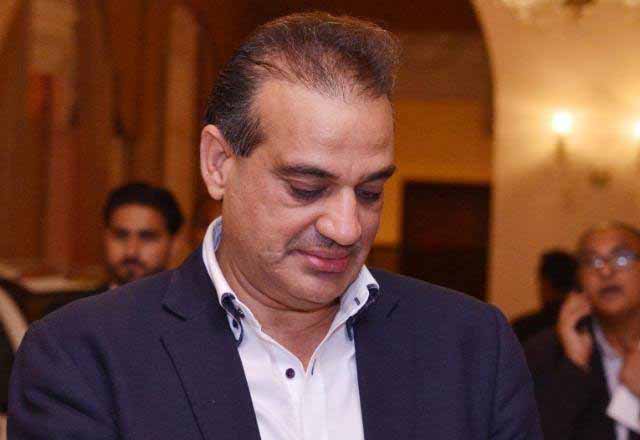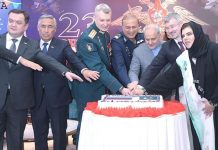Comment
Ansar M Bhatti
ISLAMABAD: As it goes when misfortunes come, they come in battalions. Pakistan’s political and economic condition has literally gone to dogs. While the nation was still trying to grapple with the monsters such as inflation; political instability, bad governance etc, then happened the Peshawar suicide blast that killed more than 100 people and left hundreds of injured. A lot of politics is now being played on the tragic incident as to who is responsible for that. As per practice, the TTP has claimed the onus of the attack but it is still a mystery how the TTP or for that matter any other terrorist outfit pronounce that it has committed the crime. The news suddenly appears on a TV channel or social media and then spreads like jungle fire. Nobody has ever tried to verify the veracity of the claim. Same thing happened in the recent episode. The TTP people denied any hand in the Peshawar blast but certain quarters are hell bent upon fixing the responsibility on it. The TTP may be involved, nevertheless those at the helm of affairs need to look into other possible threats as well.
Anyhow, the phenomenon of bomb blasts is nothing new for us. The Pakistanis have been bearing the brunt of this menace for decades. There are a number of conspiracy theories buzzing around after the blast, especially on social media, however this is the time to unite the nation instead of creating any divisions, as pleaded by Prime Minister Shehbaz Sharif during the Apex Committee meeting held in Peshawar on February 3, 2023. The Apex Committee meeting attended by the top military and political leadership sans PTI, further vowed to reinvigorate the fight against terrorism and extremism. By and large we tend to hear such vows and loud commitments after every such incident. After a while everything is forgotten and life returns to normalcy, at least till the time any other tragedy of similar or even greater magnitude takes place. That is how things work here unfortunately.
After the 2014 Army Public School attack, the National Action Plan (NAP) was launched to crack down on terrorism and to supplement the anti-terrorist offensive in Federally Administered Tribal Areas. After the National Internal Security Policy 2014, it was the 2nd consensual policy document approved by the Government. The National Action Plan spelled out the specifics for the counter-terrorism drive in the country. There were 20 agenda items of National Action Plan 2014 and implementation of the death sentence of those convicted in cases of terrorism was at the top. But we know not even a single death sentence has been executed since then simply because Pakistan has agreed a moratorium on the death penalty with the EU particularly in order to reap benefits of the GSP +.
Then in the Plan there was a provision to formulate a comprehensive policy to deal with the issue of Afghan refugees, beginning with registration of all refugees. This process has also not reached its logical end due to which people continue to sneak into Pakistan from the Northern and the Western borders without any check. The PTI government is blamed for allowing a huge influx of Afghans, mostly the TTP people, into the mainstream areas of KPK. Another charge against the PTI govt is that it freed even the ‘dangerous terrorists’ from jails simply because the government wanted to offer them an olive branch to win peace in the region. But according to their opponents the move backfired and those freed ‘terrorists’ have now let the hell loose on the innocent people.
Revamping and reforming the criminal justice system of Pakistan is yet another challenge the Action Plan envisaged to deal with. The criminal justice system in Pakistan is known to be faulty, exploitative and inequitable. These problems are most certainly some of the main causes behind high crime rates. The Criminal Justice System comprises five components i.e. the police, judiciary, prisons, prosecution, probation and parole. And I don’t think much has been done to improve working of this system ever since the promulgation of the National Action Plan in 2014. Rather, the situation seems to have gone from bad to worse when we talk about the criminal justice system. All political parties and respective governments have to share equal responsibility if this system has failed to heal wounds. Regrettably the criminal justice system in vogue only serves as a stooge of the so-called elite class of this country. Revamping of the system ostensibly is a key to improving law and order. The APS tragedy should have rung alarm bells within the ranks of powers-that-be but to the disappointment of all no serious efforts were made in this regard. Consequently the Peshawar episode took place.
Other important clauses in the NAP included special trial courts under the supervision of the Army. The duration of these courts would be two years; Militant outfits and armed gangs will not be allowed to operate in the country and NACTA, the anti-terrorism institution, will be strengthened. The military courts were established and sentences were handed down to culprits but after two years the courts had to wound up because the government did not extend their mandate. The government of the day came under pressure from its opponents for allowing a parallel judicial system in the form of the military courts hence calls were made to wrap it up. The incumbent government had no other option but to comply with the demand and thus military courts tenure came to an end.
TO BE CONTINUED…

















